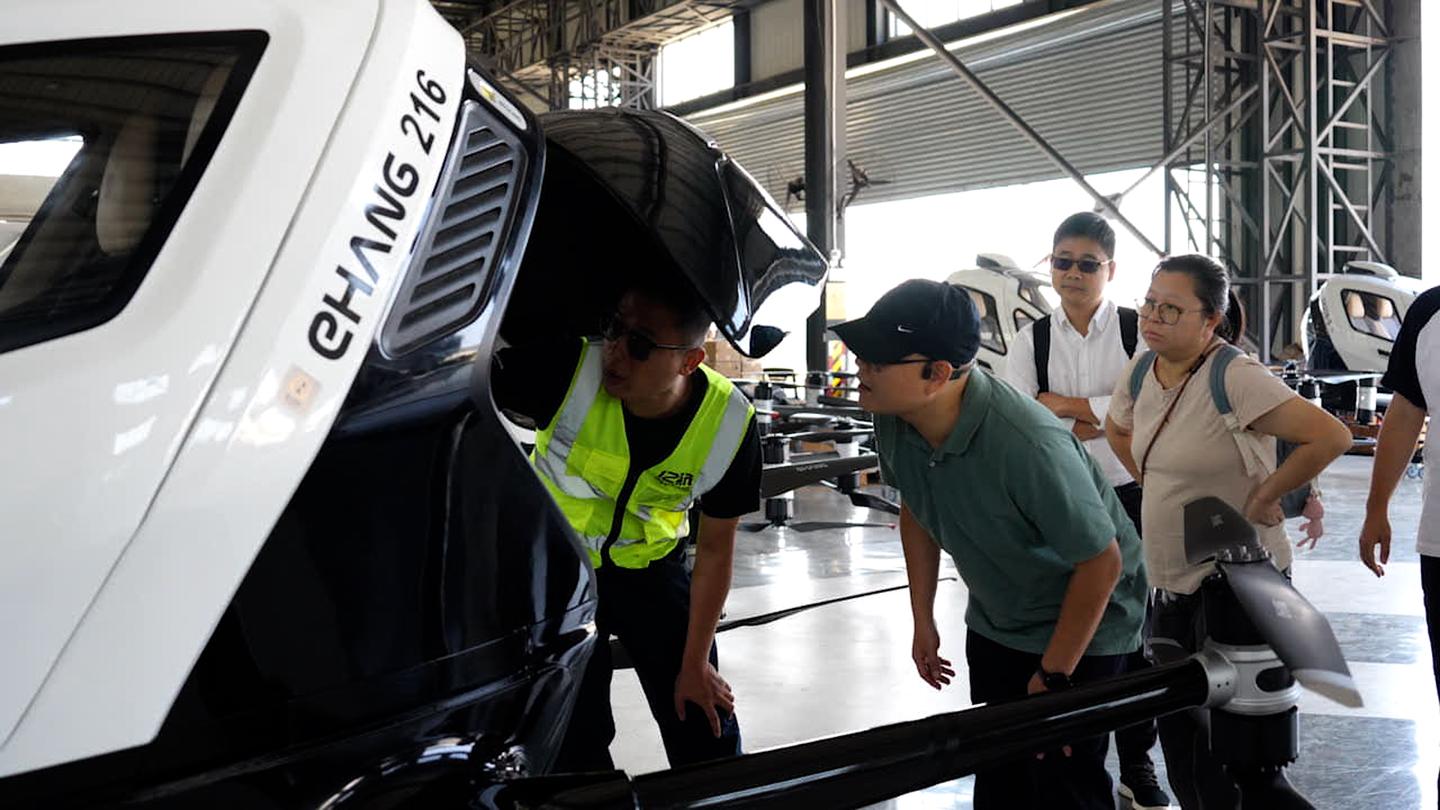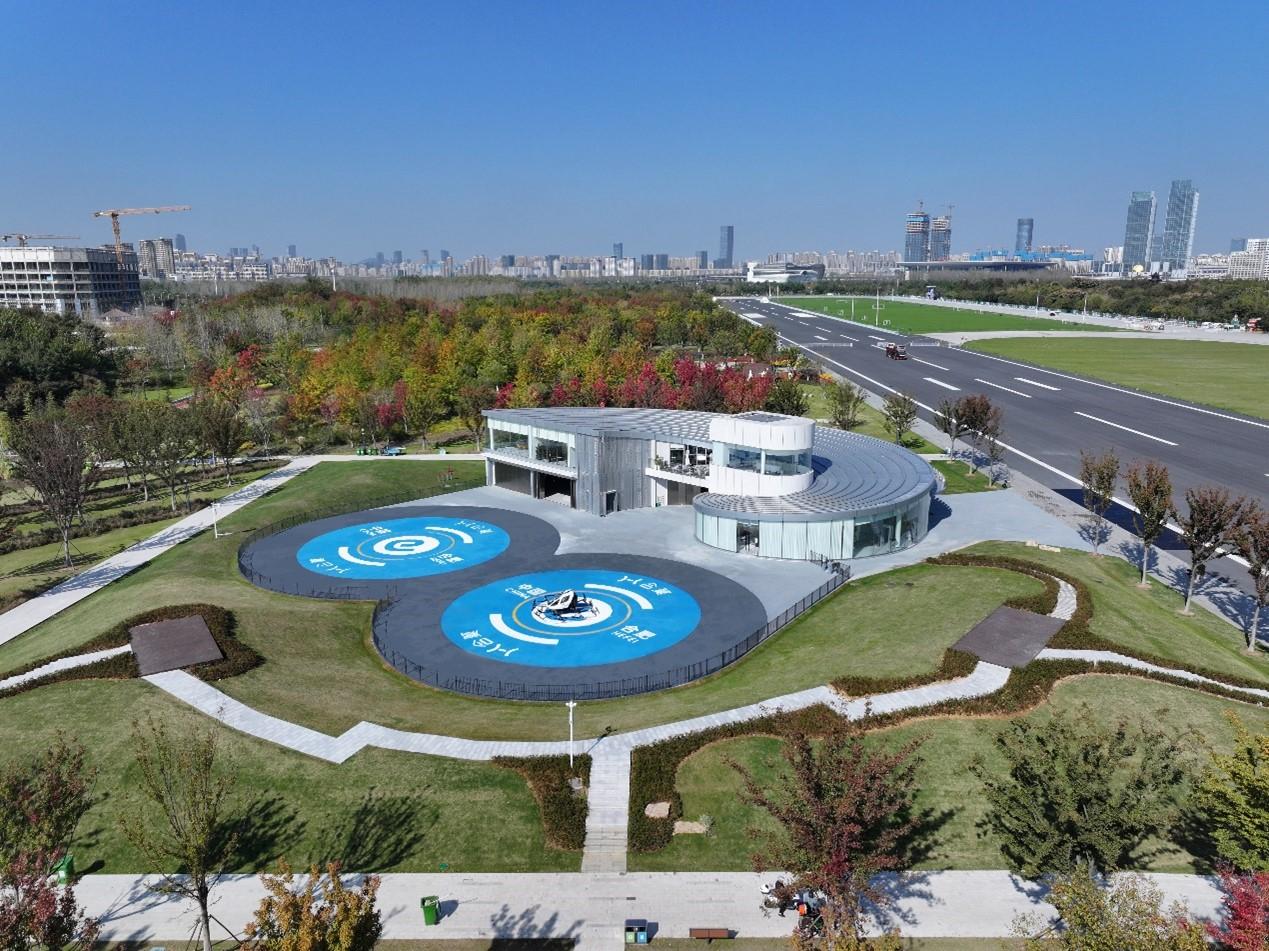After receiving the world’s first type certification a year ago and delivering dozens of aircraft for low-altitude tourism initiatives, China’s EHang has become a de facto leader in the burgeoning eVTOL industry. This month, it used that leadership role toward advancing the use of solid-state battery technology in the air, completing what it calls the world’s first solid-state battery test in a pilotless passenger-carrying eVTOL. With nearly 500 Wh/kg of energy density, the solid-state battery contributes to a serious boost in endurance, previewing a promising future of improved autonomy and utility among eVTOLs.
In September 2023, EHang inked a strategic agreement with battery startup Shenzhen Inx Energy Technology Company (Inx) with the goal of jointly developing a high-energy solid-state eVTOL battery. The two parties have since been working together with help from the Hefei International Advanced Technology Application Promotion Center. The Center created a battery research institute specifically to assist EHang’s low-altitude economy plans in the city.
Over the past year, the parties developed several battery cell/module iterations and ultimately came up with a prototype customized for EHang’s well-traveled EH216-S eVTOL. The battery uses metallic lithium as the anode and oxide ceramics as the electrolyte to deliver a claimed energy density of 480 Wh/kg. It’s also said to be capable of operating in a wide-ranging temperature spectrum from -40 to 150 °C (-40 to 302 °F).

EHang
Beyond its superior energy density and temperature range, the solid-state battery offers a number of other purported advantages over common lithium-ion batteries, including improved thermal stability, reduced flammability, improved storage stability and less required maintenance.
EHang announced on Wednesday that the battery had been successfully tested in the EH216-S, supporting an impressive continuous flight time of 48 minutes and 10 seconds, very close to double the 25-minute maximum endurance estimate previously cited for that aircraft. EHang showed video of the test at an opening ceremony of the new Urban Air Mobility (UAM) Hub at Luogang Central Park in Hefei.

EHang
Not only would the improved endurance capability increase the flight potential for current EH216-S use cases like UAM tourism, it could expand the use cases themselves. EHang cites potential applications like high-rise firefighting and aerial logistics.
“This milestone marks a significant achievement in the development of solid-state battery technology for eVTOLs, further enhancing flight safety while also substantially improving the aircraft’s endurance and operational efficiency,” said EHang COO Zhao Wang. “EHang has not only made strides in solid-state battery technology but has also collaborated with partners to develop other batteries tailored to specific applications, such as ultra-fast charging and discharging battery solutions for high-frequency short-haul flights. Looking ahead, we will provide customized battery service solutions to meet the unique needs of our customers.”

EHang
Lin Chen, chairman of Inx, added that the companies plan to deepen their collaboration and refine the capabilities of the lithium-metal battery with a goal of achieving a 60-minute flight time in 2025.
EHang hopes the continued collaboration will lead to large-scale production of solid-state batteries by the end of 2025.
Check out test flight footage below.
EHang EH216-S Completes World’s First eVTOL Solid-State Battery Flight Test
Source: EHang
Source of Article